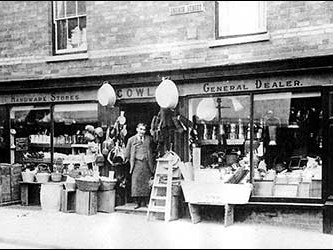 A Forrester Consulting report found that the majority of retailers do not know who their most loyal customers are and cannot know if their loyalty strategies are inspiring prolonged customer advocacy.
A Forrester Consulting report found that the majority of retailers do not know who their most loyal customers are and cannot know if their loyalty strategies are inspiring prolonged customer advocacy.
The report was commissioned by customer benefits and loyalty outfit Collinson, and it found nearly two-thirds of retailers are not actively using their loyalty programmes to know which customers were brand advocates.
Surveying decision makers at organisations with revenues exceeding $300 million, the study also found that just over half of retailers track and analyse what happens when loyal customers interact with their brand, to improve the overall loyalty experience.
To support the improvement of loyalty initiatives, customer data is key. Almost two-thirds of marketing leads surveyed admit they only conduct loyalty-specific market research occasionally to help build a greater understanding of who their best customers are. This suggests that loyalty is taking a backseat for many retailers, with a third of brands saying that their loyalty programme does not cohesively span multiple functions in the business and it is not a top strategic initiative with C-level support.
In a separate body of research conducted by Censuswide for Collinson, which sought to investigate UK consumers’ experiences of loyalty programmes from retailers they are loyal to, it found corroborating evidence that loyalty schemes are not a top priority for brands. Of those British shoppers surveyed, just over a third said they were offered to create a customer profile when purchasing online, rather than check out as a guest.
What’s more, their preferred brands aren’t encouraging further interaction after purchase, as only a third said they are typically invited to join a loyalty programme to benefit from future offers or rewards when making a purchase. Forrester’s research for Collinson confirms this issue, as nearly a quarter of retailers state outright that they do not have a balanced benefits package that rewards, recognises or engages their customers.
These missed opportunities to develop relationships with customers should be a cause for concern among retailers. By collecting their data at key junctures, brands can know their customers better and promote loyalty on the individual’s terms.
Steve Grout, Director of Loyalty at Collinson, commented: “We know that consumers’ expectations of retailers encouraging their loyalty often aren’t met. The retail landscape has shifted dramatically in recent years, and it is simply not enough anymore to offer products that, by their merit, keep customers coming back. More needs to be done to earn and retain customers’ loyalty by recognising their needs and rewarding them accordingly. Worryingly, however, it seems many brands haven’t been heeding the warning of the high street’s various struggling retailers.”
While both sets of research paint a markedly casual picture of retailers’ loyalty efforts, action is being taken to repair the issue. Regarding future investment in loyalty programmes, a significant portion of decision makers says they intend to increase spending on new loyalty benefits and rewards in the next 12 months, with 42 percent of that group pledging an increase of more than five percent on the year prior.
Grout concluded: “This advice shouldn’t come as a surprise to retailers; it’s simply about getting the basics right. Communication with new and repeat customers is crucial for promoting brand loyalty, as once a purchase is complete, you can expect to be forgotten unless you have made efforts to develop the relationship beyond a simple transaction. Our research with Forrester found that a staggering 61 percent of retailers do not provide their staff with information to better know and serve customers in-store. This is just one example of retailers ignoring an important customer touchpoint to help inspire positive sentiment and prolonged loyalty.
“The jury is out on whether brands’ investments in loyalty initiatives will have their intended impact. One thing is for sure, though. If they fail to listen to customers and refresh their programmes irrespective of the data available, they will struggle to resonate and succeed with deservedly demanding customers in this fiercely competitive modern retail climate.”





